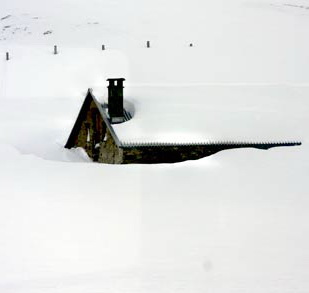Judge Posner Considers the Distinction between Liability for Contract and Liability for Fraud
January 30th, 2010Judge Richard A. Posner of the Seventh Circuit Court of Appeals contributed his thoughts at a symposium on the rationale for liability for breach of contract. One of his points is a sound analytic distinction between tort liability and contract liability, a concept which is sadly muddled in California cases.
Writes Judge Posner, “Here is a simplified version. A and B make a written contract. Later A sues B claiming that during the negotiations B deliberately misrepresented the benefits that A would derive from the contract. But A does not sue for breach of contract. He can’t; the parol evidence rule would bar a claim that promises made during the negotiations but not repeated in the contract should be deemed contractually binding.”
 That’s clear legal thinking. There is no claim for breach of contract because the law of evidence excludes evidence of terms that contradict the terms of the contract.
That’s clear legal thinking. There is no claim for breach of contract because the law of evidence excludes evidence of terms that contradict the terms of the contract.
Judge Posner continues. “So A sues B in tort, charging fraud. The parol evidence rule is not a rule of tort law.”
Right again. Parol evidence knocks out the contract claim, but not the tort claim.
“B has a defense [to the fraud claim]: the written contract had included a clause stating that neither party was relying on any representations not embodied in the written contract.”
According to Judge Posner, “The ‘no reliance’ clause scotches A’s fraud suit because you cannot obtain damages for fraud unless you relied on the fraudulent representations, and A has disclaimed such reliance. So although B is assumed to have acted wrongfully, A has no remedy either in contract or in tort.”
Well, maybe not so fast. Isn’t the whole point of the fraud claim that the wrongdoer deceived the victim? Conceptually, I don’t see how the bad guy gets to hide behind his contract, when the injured part was induced, by false promises, to enter into the contract. The false promises should negate the terms of the contract, at least insofar as such terms act to exculpate the bad guy.
Now, here’s an even deeper way to look at the issue, which takes us into philosophical terms. Judge Posner posits that, “There is, however, a limited duty of good faith at the contract-formation stage as well.”
Now we’re getting to the point. Are we focusing on a wrong arising out of the contract, or a wrong that preceded the contract?
“It is one thing to say that you can exploit your superior knowledge of the market for if you cannot, you will not be able to recoup the investment you made in obtaining that knowledge or that you are not required to spend money bailing out a contract partner who has gotten into trouble. It is another thing to say that you can take deliberate advantage of an oversight by your contract partner concerning his rights under the contract.”
This runs straight to a utilitarian moral theory, which is not easy to square with cold-blooded contract analysis. Yet Judge Posner continues on. “Such taking advantage is not the exploitation of superior knowledge or the avoidance of unbargained-for expense . . . Like theft, it has no social product, and also like theft it induces costly defensive expenditures, in the form of overelaborate disclaimers or investigations into the trustworthiness of a prospective contract partner, just as the prospect of theft induces expenditures on locks.”
Richard A. Posner, “Let Us Never Blame a Contract Breaker,” in Michigan Law Review, Vol. 107, No. 8, page 1349






 The statute continues. “The acceptance of charitable contributions by a charity [establishes] a duty on the part of the charity and the person soliciting on behalf of the charity to use those charitable contributions for the declared charitable purposes for which they are sought.” The statute concludes by reciting that, “This section is declarative of existing trust law principles.”
The statute continues. “The acceptance of charitable contributions by a charity [establishes] a duty on the part of the charity and the person soliciting on behalf of the charity to use those charitable contributions for the declared charitable purposes for which they are sought.” The statute concludes by reciting that, “This section is declarative of existing trust law principles.” “The answer is ‘the men.’ A trust of the type formed by both men in this case is simply a fiduciary relationship, governed by the Probate Code, by which one person or entity owns and controls property for the benefit of another.
“The answer is ‘the men.’ A trust of the type formed by both men in this case is simply a fiduciary relationship, governed by the Probate Code, by which one person or entity owns and controls property for the benefit of another.  In 1680 Property Trust, it was alleged that the trustee had made fraudulent statements. The trustee had died more than one year before the lawsuit was filed. California law provides that an action against the decedent must be filed within one year from the date of death. (The one-year rule applies to claims that existed as of the date of death. If the claim arises subsequent to death, then an action can be filed after the general one-year period.)
In 1680 Property Trust, it was alleged that the trustee had made fraudulent statements. The trustee had died more than one year before the lawsuit was filed. California law provides that an action against the decedent must be filed within one year from the date of death. (The one-year rule applies to claims that existed as of the date of death. If the claim arises subsequent to death, then an action can be filed after the general one-year period.) A recent article by Prof. Brent White from the University of Arizona law school has provoked heartburn in the lending community. Prof. White argues that that many borrowers would be better off if they simply walked away from their underwater loans and rented a house. He cites statistics showing that 71% of mortgages in the Fresno area are underwater as of 2009. It’s even worse in Bakersfield, where 79% of mortgages are underwater.
A recent article by Prof. Brent White from the University of Arizona law school has provoked heartburn in the lending community. Prof. White argues that that many borrowers would be better off if they simply walked away from their underwater loans and rented a house. He cites statistics showing that 71% of mortgages in the Fresno area are underwater as of 2009. It’s even worse in Bakersfield, where 79% of mortgages are underwater.